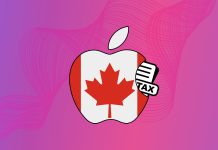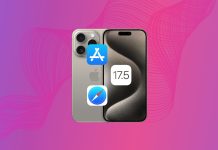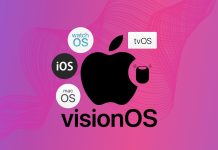A day doesn’t go by where I’m not blaring music while going about my daily work routine. Hell, an hour doesn’t go by. At my desk, music. In the car, music. Playing video games, music. Music is a pretty big staple in my life, so iTunes Match was a pretty nifty concept when I first heard about it during the WWDC keynote last June. It wasn’t pegged as a streaming service, but to anyone who looked a little deeper than the PR in the keynote, it was pretty obvious that basic streaming was going to be part of the experience, whether Apple wanted to admit it or not at the time.
Nearly a year later I find that I exclusively use it to stream my music, and that’s a real problem considering the alternatives on the market.
Table of Contents
Buying Into iTunes Match, Mistakenly
The great thing about iCloud is having access to all of my documents and photos from whatever device I’m on. Add in Calendar and note syncing, reminder and bookmark syncing, and I’m pretty much all in. What doesn’t fit, though, is music, at least in the model Apple’s managed to come up with, which is likely the reason why Apple doesn’t bundle iTunes Match with iCloud’s setting in iOS. On some levels, iTunes Match fits into iCloud, but on others it’s completely unrelated as I came to figure out accidentally.
Putting my music library in the cloud and having songs I’ve purchased available to me at all times is something that appealed to me, but then I got to thinking: how does iTunes Match match up financially with other services. It turns out that iTunes Match is $27.99 and Rdio is $119.88 for the entire year. At the time it made complete sense to go with iTunes Match, given the savings and my penchant for purchasing music outright. It didn’t take too long until I started to wonder if it was worth the investment. On one occasion, I didn’t just accidentally manage to delete music files from my file system, but I also managed to delete the tracks from the iTunes listing (XML files). What happened next blew my mind – the music was gone forever. The music was gone from my computer, and since my XML file changed, Apple removed my access to the songs in iCloud making it impossible for me to re-download the tracks. iTunes Match failed me. Luckily I still had access to backups, and I hadn’t emptied my trash can. But, the experience got me thinking once again, and it was pretty evident now that Apple wasn’t going to let you get your files off their servers unless you had a song loaded or listed in iTunes.
Your music in the cloud is only ever really in the cloud if your iTunes listing says it is, and that’s something that scared me pretty good about fully relying on iTunes Match for hosting all my music. The experience got me thinking, again. Here we are, almost a year into iTunes Match. What else needs fixing or changing?
Here’s a list of a couple of things that I’d love to see fixed in the near future.
A couple of iTunes Match fixes
Canadian Disconnect
An interesting bug has been popping up for my Canadian brethren, and by extension, we assume other non-American iTunes Match users. After a quick Twitter poll it became pretty obvious that Canadians were getting disconnected from iTunes Match pretty regularly. For me, it seems like once a week I have to re-add computers to my iTunes Match account. For some reason I get signed out of my Apple ID, and my MacBook Air or Mac Pro starts tossing up a prompt to “Add This Computer” to iTunes Match. Every time I have to gather information, match my music, and upload my artwork. Every. Single. Time. On my MacBook Air that’s not much of a problem. I store zero tracks on the device, but on my Mac Pro it’s another story altogether with well over 8,000 tracks to sync.
I haven’t been able to wrap my finger around why I randomly get disconnected, but I have managed to narrow it down to resetting Safari. If I’m in iTunes and listening to music over iCloud, and then I reset Safari (Safari > Reset Safari …), the process immediately severs my connection in iTunes. Why that happens, and why they’re related makes very little sense to me at this point. Two distinct applications shouldn’t rely on each other for connection information.
iTunes Match in iOS needs work
Mobile data rates are asinine and expensive, so it’s worth pointing out that any kind of streaming service while out and about is going to come with a hefty price tag. That problem goes for iTunes Match, and all of the competition like Rdio and Spotify. The problem, however, isn’t the cost of bandwidth; instead, it’s the difficulty in finding what tracks are in the cloud and which are stored locally on a device. Apple currently denotes iCloud files with a nice little cloud icon beside the artist or track. It’s easy to tell which tracks are in the cloud, but not so easy to figure out what tracks are on my device. Having to scroll through a huge list of artists just to find a song or two that’s on my phone already doesn’t make all that much sense.
Apple does give users the able to disable 3G data for iTunes Match in the Music settings in iOS, as well as the ability to disable iTunes Match entirely on the iPhone. But, having to disable and re-enable iTunes Match every time you’re trying to easily find music to listen to that’s not in the cloud isn’t ideal.
Simple solution
All Apple has to do to fix this problem is create a default playlist that only shows tracks on the device instead of in the cloud. Hopefully we’ll see something simple addressing the situation in the near future. When it comes to OS X, I’m on Wi-Fi, so grabbing music or streaming it isn’t that big of a deal. But, when I’m out at Starbucks, grabbing a track quickly over the 3G network is going to be a pretty expensive data transmission.
Just give us streaming access already
Until about two months ago I found myself firmly in the “want to own my music” camp. I still buy albums from time to time, but to be honest, just give me real iTunes streaming already. I’ll pay more for it. Apple constantly tells us that people want to “own” their music, and they’re not wrong, but what they’re missing is that sometimes people like listening to the radio too. Today radio blows, and streaming services are replacing radios pretty quickly. Sometimes I want to buy music, but sometimes I just want to hear that song from my youth. It’s two different paradigms and Apple needs to realize that there’s a very large market for both.
Store My Track List In The Actual Cloud
Going full circle, there’s absolutely no reason why I shouldn’t be allowed to download my music if I accidentally delete it. Actually, Apple outright tells us that we can. But I can attest first-hand that the claim isn’t entirely true. If Apple wants to provide me with a failsafe, they should actually provide me with a failsafe and put my track list in the cloud. Accidentally deleting both a track file and the track listing in iTunes should’t be possible at that point. I should be able to go back and get a song if I happen to pull a Stabone and delete it.
Final Thoughts
The term iTunes Match needs to be taken quite literally. Expecting it to do something other than “match” your local files to ones in the cloud is the extent of its capabilities. The moment your local listing changes, so does Apple’s commitment to giving you the tools to back up your files. It’s not called iTunes Backup, or iTunes Streaming, which actually illustrates an important point – there’s a lot of room for iTunes Match to grow up, and we hope that Apple decides to turn iTunes Match into a legitimate cloud service sooner rather than later.






